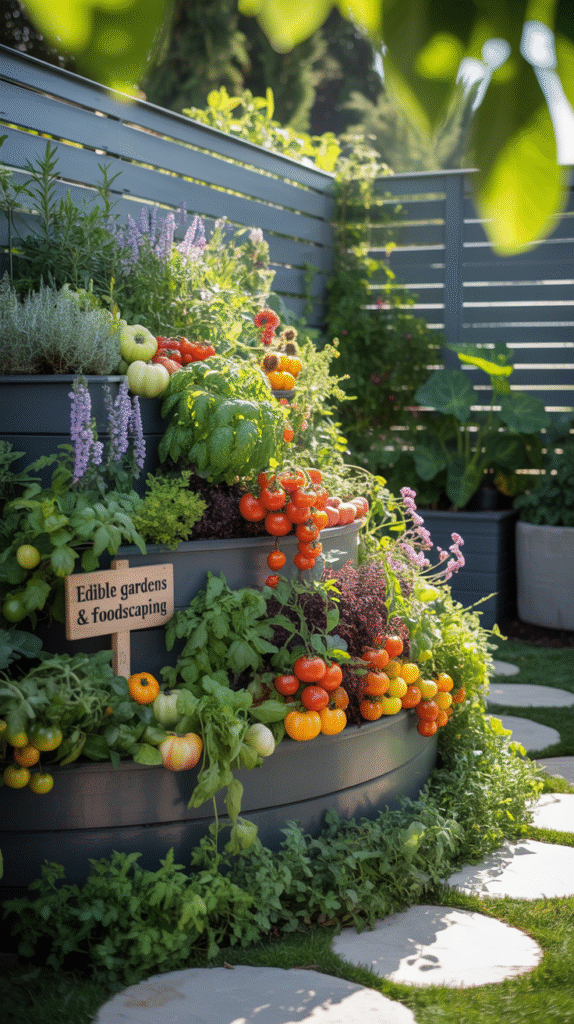The Best Organic Fertilizers for a Healthy Vegetable Garden
Introduction to Organic Fertilizers
Welcome to the world of organic gardening, where the principles of sustainability and environmental consciousness intersect beautifully. As more gardeners seek to cultivate a healthier, chemical-free environment, organic fertilizers have emerged as a cornerstone in growing thriving vegetable gardens. These natural amendments not only enhance plant growth but also promote a holistic approach to soil health, which is vital for a sustainable gardening practice.
The foundation of any successful vegetable garden lies in the nurturing of soil health. Organic fertilizers play a crucial role in this process by adding essential nutrients back into the soil. Unlike their synthetic counterparts, organic fertilizers are derived from natural sources, making them safer for both plants and the environment. They help to improve soil structure, which enhances water retention and aeration. This, in turn, leads to robust root systems and healthy plants.
Moreover, organic fertilizers enhance nutrient availability to plants. They gradually release their nutrients, providing a more balanced supply over time, which minimizes the risk of nutrient leaching into groundwater – a common issue with chemical fertilizers. In addition to supplying key nutrients, organic options support the growth of beneficial microorganisms within the soil. These microorganisms contribute significantly to nutrient cycling, making them accessible to plants and promoting a thriving ecosystem.
Using organic fertilizers also minimizes the risks associated with chemical runoff and residue, ensuring that your vegetable garden remains a safe habitat for beneficial insects and wildlife. By embracing organic fertilizers, gardeners not only foster healthier plants but also participate in a movement towards sustainable agriculture. This practice is essential for preserving the integrity of our ecosystems while providing nutritious food for families. The journey of nurturing a healthy vegetable garden begins with the right choice of organic fertilizers.
Understanding Organic vs. Synthetic Fertilizers
Organic fertilizers are derived from natural sources, including plant matter, animal manure, and other organic materials. These fertilizers enrich the soil through the slow release of nutrients, fostering a balance of soil microorganisms that contribute to overall soil health. Unlike synthetic fertilizers, which are chemically manufactured and often designed to deliver nutrients quickly, organic fertilizers promote sustainability by improving the soil structure and fostering biodiversity in the garden ecosystem.
One significant difference between organic and synthetic fertilizers is their environmental impact. Organic fertilizers enhance soil structure, improving its ability to retain moisture and support plant growth in the long term. This naturally regenerative approach reduces the need for repeated applications, as these fertilizers break down slowly, providing a steady supply of nutrients over time. Furthermore, the use of organic fertilizers minimizes the risk of nutrient runoff, which can lead to water pollution and harmful algal blooms, a common consequence of synthetic fertilizers.
In contrast, synthetic fertilizers can provide immediate nutrient availability, giving a quick boost to plant growth. However, this rapid supply often comes at a cost, as they may lead to soil degradation and dependency over time. The short-term efficiency of synthetic fertilizers can subsequently impair the long-term health of garden soil, resulting in diminished fertility and increased need for further applications. For example, high-nitrogen synthetic fertilizers may stimulate excessive growth but can also cause nutrient imbalances or even harm beneficial bacteria in the soil.
Ultimately, maintaining a healthy vegetable garden is best achieved through organic fertilizers. Their natural origins promote environmental sustainability, while their long-lasting benefits significantly contribute to enduring soil health. By choosing organic methods, gardeners can create a sustainable growing environment that supports both plants and the ecosystem around them.
Top Organic Fertilizers for Your Vegetable Garden
When it comes to nurturing a thriving vegetable garden, choosing the right organic fertilizers is crucial. Organic fertilizers not only enrich the soil but also promote healthy plant growth, ensuring a robust yield. Here is a comprehensive list of some of the best organic options available.
1. Compost: Compost is one of the most effective organic fertilizers, made by decomposing organic matter such as kitchen scraps and yard waste. It provides an array of nutrients, including nitrogen, phosphorus, and potassium. Incorporating compost into the soil enhances its structure, aeration, and moisture retention. Ideal usage involves mixing it into the topsoil prior to planting or applying it as a top dressing during the growing season.
2. Worm Castings: Known for their wealth of nutrients, worm castings are a byproduct of earthworm digestion. They are rich in nitrogen and can increase microbial activity in the soil, promoting plant health. To use worm castings, simply sprinkle them around plants or mix them into potting soil for container gardens.
3. Seaweed: Seaweed fertilizers are packed with trace minerals, vitamins, and growth hormones. They can promote strong root development and enhance overall plant vigor. Seaweed extracts can be applied as a foliar spray or diluted in water for root drenching to provide essential nutrients directly to plants.
4. Bone Meal: Bone meal is an excellent source of phosphorus, crucial for flowering and root growth. It is particularly beneficial for plants that require strong root systems. It is best applied during the planting process, mixed into the soil, to ensure that plants can access the nutrients as they establish.
5. Coffee Grounds: A common household waste, coffee grounds are rich in nitrogen and can improve soil structure and drainage. They can be sprinkled directly onto the garden soil or added to the compost pile. However, it is advisable to use them in moderation to avoid acidity in the soil.
DIY Organic Fertilizers: For those interested in homemade options, several household materials can be transformed into effective organic fertilizers. For example, banana peels can be buried in soil to provide potassium, while eggshells can be crushed and added to soil for calcium enrichment. This not only recycles waste but also offers an economical approach to fertilization.
Incorporating these organic fertilizers into your gardening routine can significantly enhance plant growth and promote a healthy, productive vegetable garden. Each option offers unique benefits that can help achieve optimal yields based on specific plant requirements.
Fertilization Frequency and Best Practices
Timing and frequency play crucial roles in the effective application of organic fertilizers for vegetable gardens. Generally, it is advisable to fertilize vegetables at the beginning of the growing season, usually in spring, as plants begin to develop. During this period, a balanced organic fertilizer can provide essential nutrients, fostering robust growth. For most vegetables, a fertilization schedule of every three to four weeks during their active growing phase is recommended. However, some fast-growing vegetables, such as leafy greens, may benefit from more frequent applications, potentially every two weeks, to support their rapid development.
It’s vital to recognize the signs of nutrient deficiency in vegetables. Yellowing leaves, stunted growth, or poor fruit development can indicate a lack of essential nutrients. For instance, nitrogen deficiency is often marked by yellowing leaves, whereas potassium deficiency may result in browning leaf edges. Regular observation of plant health and growth can guide you in making timely adjustments to your fertilization strategy.
Best practices for fertilizing involve following a few key steps. Start by applying organic fertilizers in the spring and consider a mid-season application as plants reach their peak growth. Additionally, conducting soil tests can offer insights into specific nutrient needs, allowing for customized fertilizer applications tailored to your garden’s unique requirements. Testing soil pH and nutrient levels not only optimizes fertilizers used but also promotes healthier plants and higher yields over time.
Seasonal considerations are also important; for example, applying fertilizers too late in the growing season may lead to lush foliage growth at the expense of fruiting, reducing overall crop yield. Therefore, aligning fertilization practices with plant growth cycles is critical. For further information on garden management, including algae control strategies that can complement your fertilization practices, refer to our detailed guide.
Be sure to check this post out on Choosing the Right Soil for Your Vegetables







